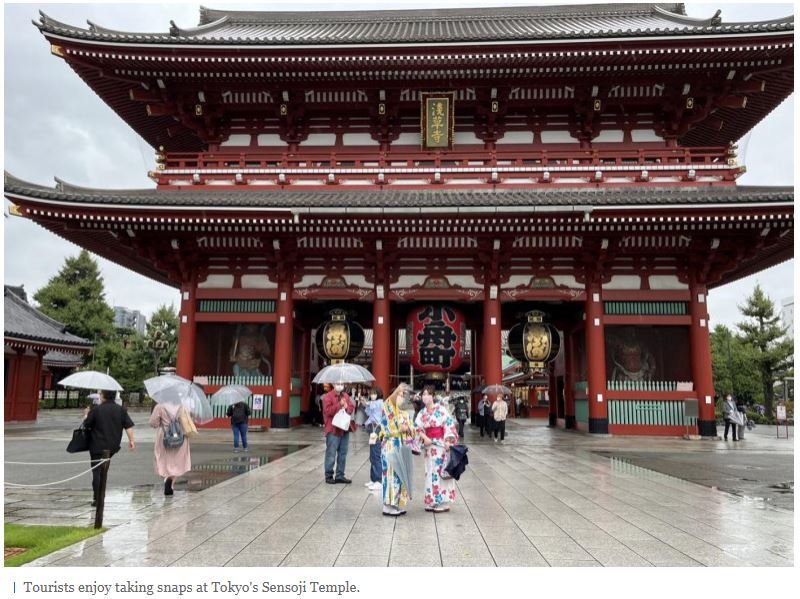Thailand: Weaker baht hits travel
Outbound Thai travel is expected to stay subdued as a result of the weak baht, poor purchasing power and cryptocurrency losses, despite the reopening of Japan and Taiwan.
Charoen Wangananont, president of the Thai Travel Agents Association (TTAA), said enquiries into holidays to Japan soared after last week’s announcement that the country would reopen without visa requirements from Oct 11.
However, 30,000 Japanese packages are expected to be sold in October, which is much lower than the average of 100,000 packages per month prior to the pandemic, which has been blamed mainly on surging airfares.
“Before the reopening announcement, air tickets had already seen an increase of 30% due to the soaring fuel surcharge, but soon after the announcement the price surged by 50% as there is an influx of demand from Thai tourists,” said Mr Charoen.
For instance, the average price for a flight to Tokyo was 20,000 baht before the announcement, but has now risen to 25,000-30,000 baht.
Pent-up demand is expected to strengthen the market in the final quarter, which also has favourable seasonality – autumn and winter – that supports the growth, as tourists are eager to see changing leaves and experience snow for the first time in almost three years.
More than 50,000 packages could be sold for December as there are several public holidays that month, while the following quarter might see a slight fall in sales because those with purchasing power will have already completed their trips.
“The booking trend is very strong until December, but we’re still worried about weak purchasing power, mostly deriving from the weak baht and cautious spending. We observed lower numbers of young travellers who are cryptocurrency holders, as the digital currency market has been fluctuating with a declining value. Many of our customers lost their investments in this market,” Mr Charoen said.
He said border reopenings are good news for the tourism industry, but there are many factors that impact the market, such as a doubling of travel costs compared to pre-pandemic levels, and a gradual return of seat capacities as airlines need more time to resume services.
Mr Charoen said it might take at least 2-3 years to see 11 million outbound tourists from Thailand, as was witnessed in 2019.
Taiwan’s reopening is moving at a slower pace, with tour operators having to wait for a clear announcement from the government.
Chotechuang Soorangura, vice-president of the TTAA, said some tourists had cancelled tour bookings as the new Japanese entry rules no longer require the use of tour operators.
Most Thais normally prefer independent travel and are expected to opt for self-planned trips from next month.
“Free individual travel will be on the rise, while tour companies have to pivot to the corporate segment instead to secure income as this group still has a healthy budget,” he said.
Mr Chotechuang said there have been more enquiries from private companies and state agencies that would like to organise tours.
He said some firms wanted to hold their trips earlier than planned as they were excited about the Japanese reopening news.
Source: https://www.bangkokpost.com/business/2400918/weaker-baht-hits-travel


 Thailand
Thailand




